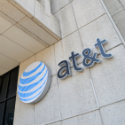
Verizon now appears to be the only major wireless network operator that's still capping customers' high-speed data allotments, following a move by AT&T to join T-Mobile in dropping its own usage cap.
The jostling among the three big operators likely won't affect many customers' day-to-day usage or expenses. Instead, it's broadly a reflection of operators' general desire to be viewed as the "best" wireless network provider. But the issue has taken on a greater degree of importance recently as operators expand their 5G networks and offer increasingly more competitive promotions.
No more slowdowns
T-Mobile kicked off the topic in February when it unveiled its Magenta Max data plan, the operator's most expensive unlimited plan. The plan does not include any usage-based data limits, at least for data that is consumed on its customers' phones. (T-Mobile still limits hotspot data usage.) The operator previously slowed customers' smartphone speeds after they consumed 50GB of data in a monthly billing cycle.
In its advertisements for the plan, T-Mobile has loudly boasted that it is able to offer Magenta Max due to the quality of its 5G network. "Magenta Max is just a first taste of what our network capacity allows us to do!" T-Mobile CEO Mike Sievert exclaimed in a release at the time.
In its new announcement this week, AT&T said it too will remove the usage cap on its Unlimited Elite plan, its own most expensive unlimited plan. "It's now full speed ahead for Elite customers," the operator boasted. AT&T previously slowed customers' speeds after they consumed 100GB of data in a monthly billing cycle.
T-Mobile quickly issued a response: "It only took them four months to follow our lead with a Magenta Max knock-off," said T-Mobile's Jon Freier in a statement emailed to the media hours after AT&T's announcement. "Too bad AT&T customers will still have to use AT&T's network. It's like we said, a strong T-Mobile is GREAT for customers. Now, when will Verizon, Comcast, Charter decide to step up?"
Following AT&T's announcement, Verizon now appears to be the only wireless network operator slowing its customers' network speeds (Comcast and Charter offer mobile services through Verizon's network). "In times of congestion, your data may be temporarily slower than other traffic after exceeding 50 GB/mo/line," Verizon warns customers on its Get More Unlimited plan, its most expensive unlimited data plan. A Verizon representative did not immediately respond to questions from Light Reading on the topic.
3G policies in a 5G era
To be clear, few customers ever near such usage thresholds. For example, Ericsson recently reported that average monthly smartphone data usage in North American sits around 12GB per month. Moreover, customers who go over their operators' allotments aren't cut off entirely; instead, their speeds are just cut. And some operators – like Verizon – only reduce customers' speeds when network traffic is high, such as in the afternoon.
It's also worth noting that most operators still throttle or otherwise cap usage on their less expensive data plans.
Regardless, such network-management practices stem from the days of 3G, when most wireless networks strained under the data demands of the world's first smartphone users. Nowadays, wireless network operators are increasingly stepping back from onerous data-usage restrictions as they upgrade to increasingly more capable wireless network technologies. 5G, after all, is specifically designed to support vast amounts of data at a low cost.
Winds of change
But the actions by T-Mobile and AT&T aren't happening in a vacuum. First, the operators are locked in a tight battle over growth in a market that's becoming increasingly competitive. For example, AT&T has been offering a free phone promotion for months now; Verizon recently responded with a similar offer of its own. Thus, each provider is working to either gain leverage against its competitors or to remove leverage their rivals may have.
Second, AT&T, Verizon and T-Mobile continue to fight each other for a leading position in the early days of 5G. All of the operators generally argue that their 5G network is the fastest, best or most reliable. And each is working to craft a marketing message that will convince regular consumers that they're in the lead in 5G.
Finally, all three operators are working to curry favor with policymakers who are increasingly taking a hard line on operators' pricing and marketing. Indeed, President Biden has said he favors a return to net neutrality guidelines. The removal of data caps is certainly in line with that disposition.
Related posts:
— Mike Dano, Editorial Director, 5G & Mobile Strategies, Light Reading | @mikeddano
About the Author(s)
You May Also Like












